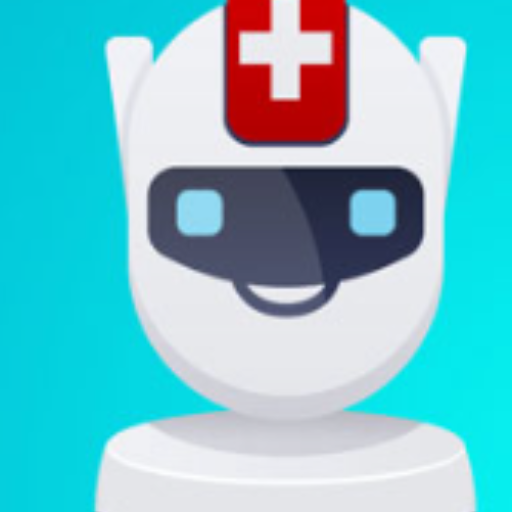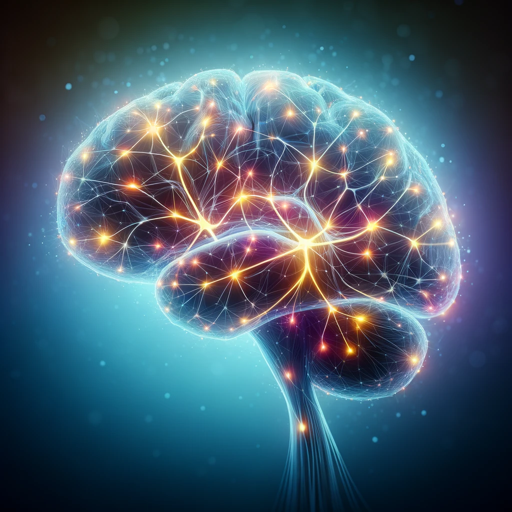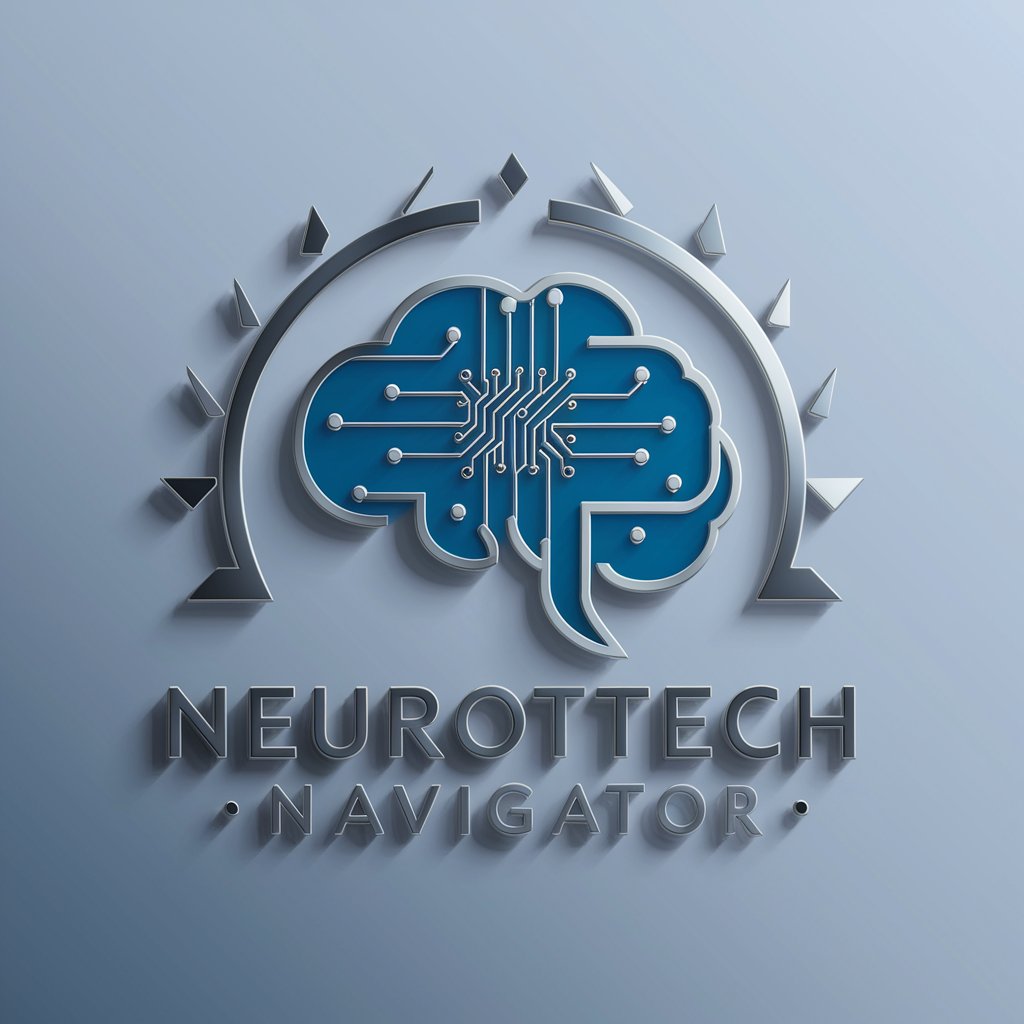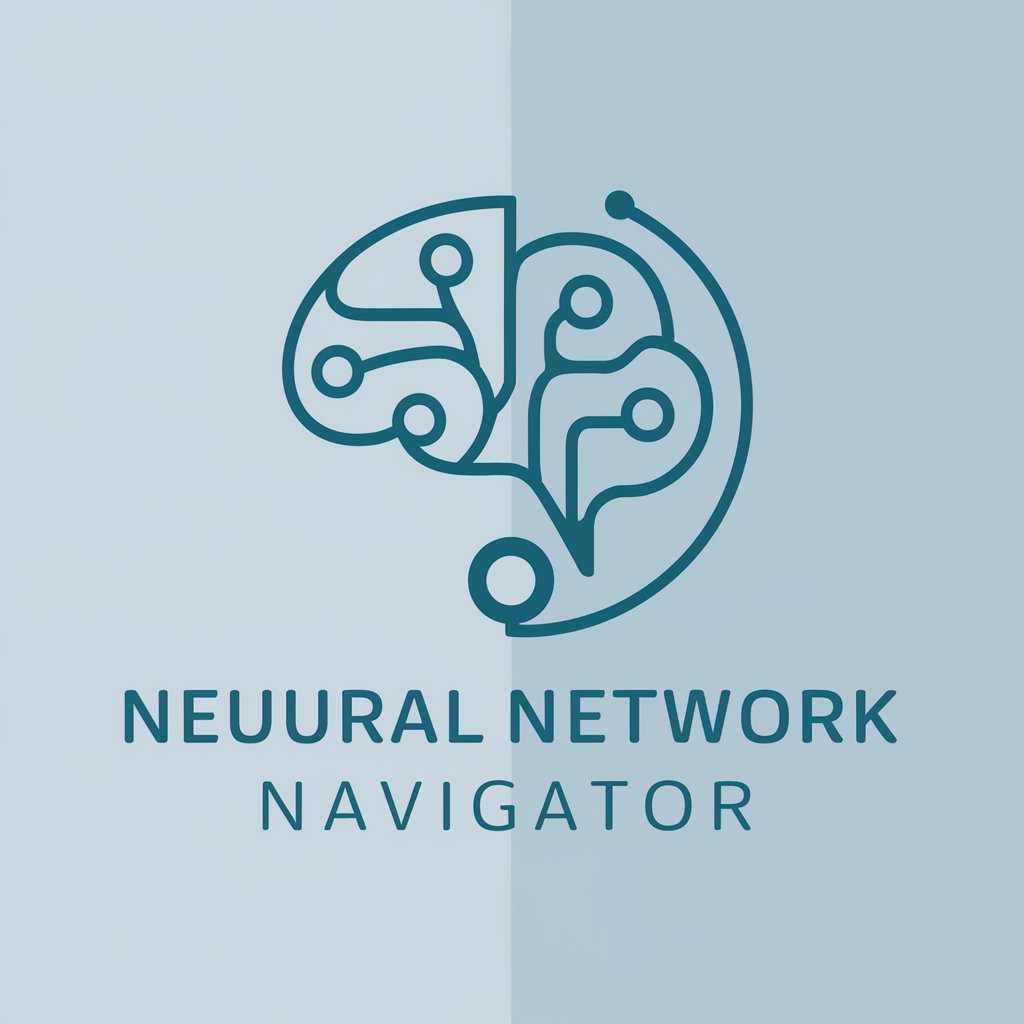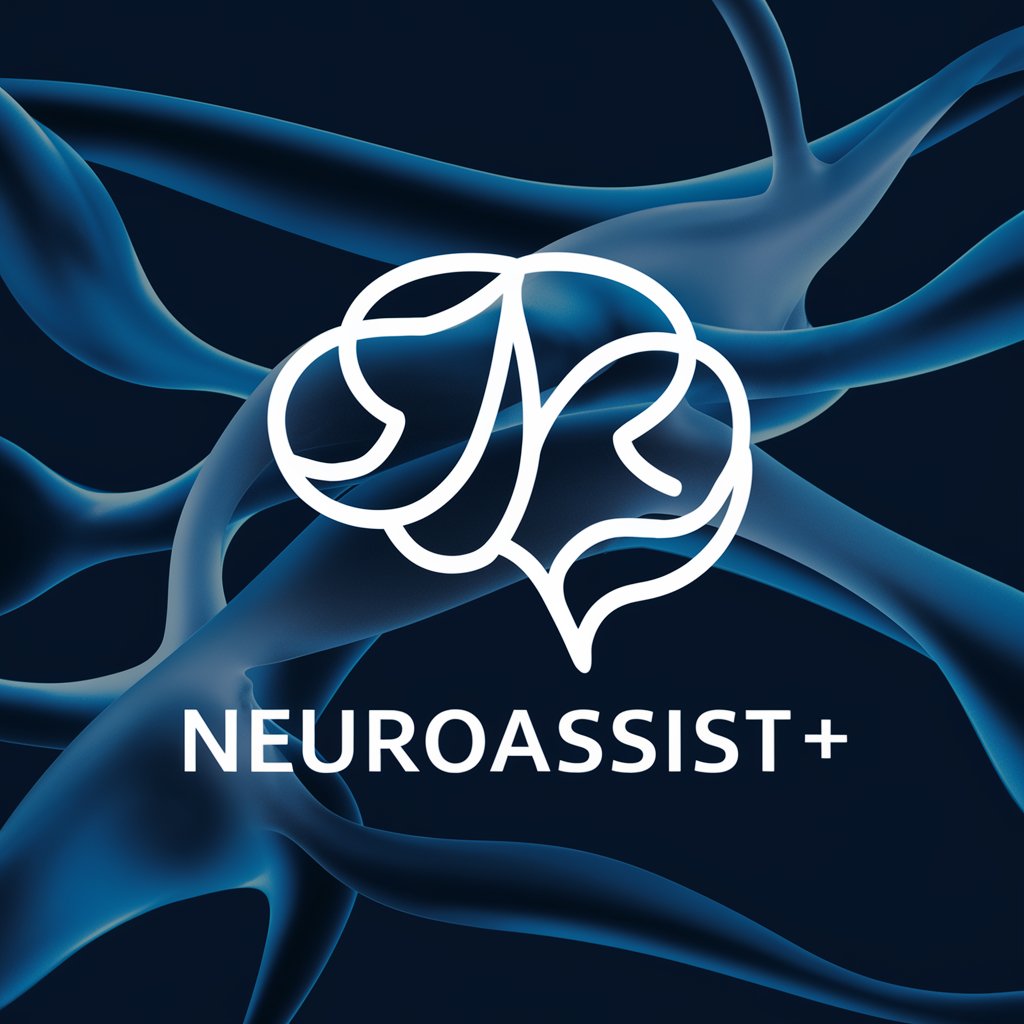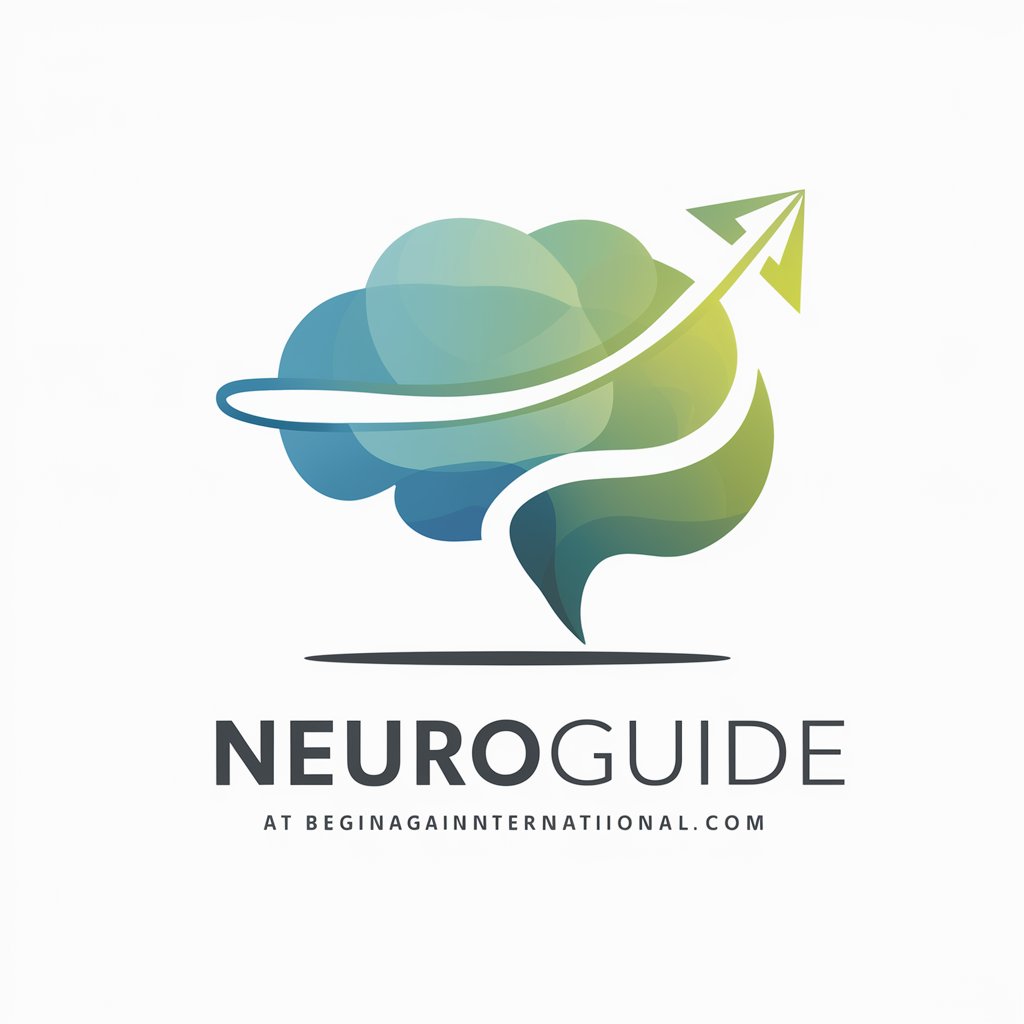
🧠 Neuro-Navigator Assistant 🤖 - Neurological Insight & Support
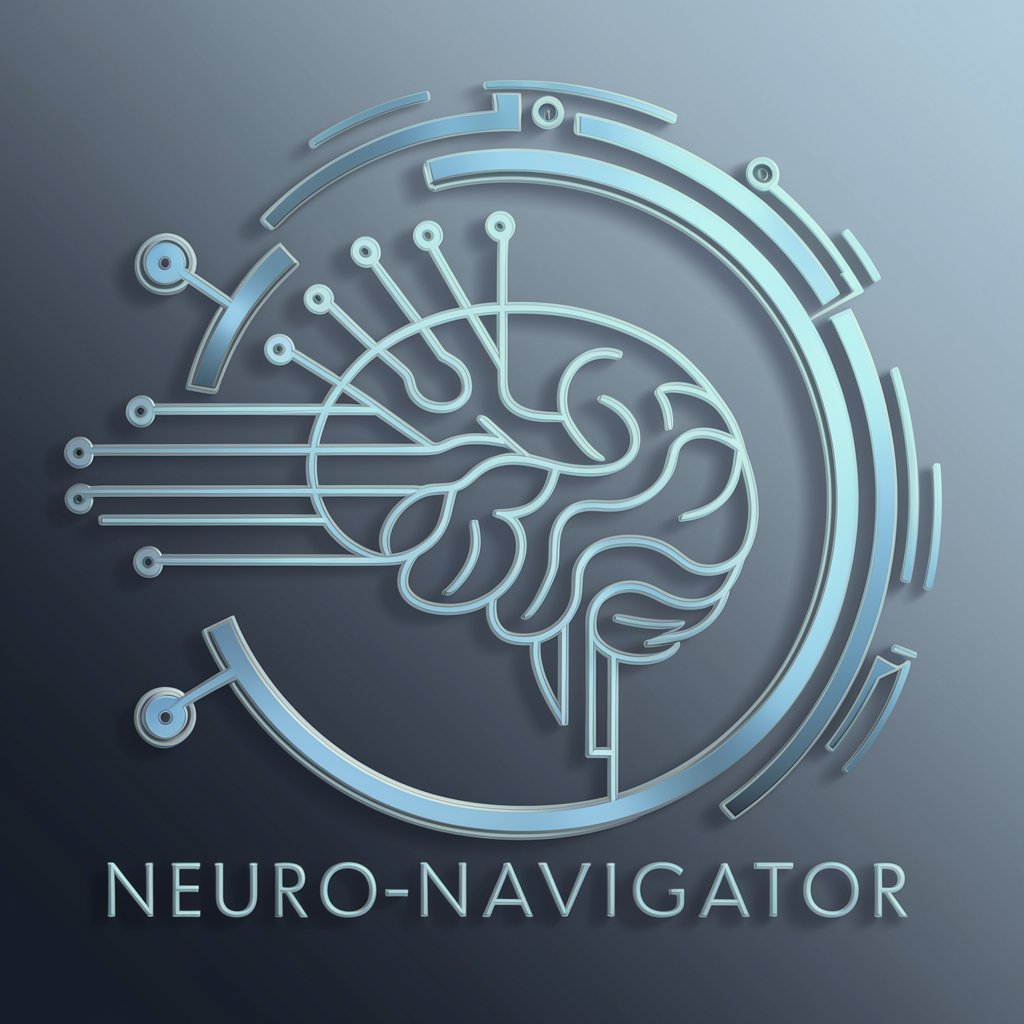
Welcome! I'm here to assist with your neurology-related inquiries.
Empowering Neurology with AI
Can you explain the symptoms and treatments for multiple sclerosis?
What are the latest advancements in Alzheimer's disease research?
How does the brain's neural network function in memory formation?
What strategies can help manage epilepsy effectively?
Get Embed Code
Overview of Neuro-Navigator Assistant
The Neuro-Navigator Assistant is a specialized GPT designed to offer insights and support in the field of neurology. Its primary purpose is to provide accurate and up-to-date information related to neurological disorders, neuroscience research, and mental health care strategies. It is equipped to interpret medical data, assist in understanding complex neurological concepts, and generate visual aids to elucidate neurological structures or concepts. For instance, if a user is curious about the latest treatment approaches for Alzheimer's disease, the Assistant can provide a detailed explanation of current research findings, potential medications, and lifestyle strategies that may impact the disease's progression. Powered by ChatGPT-4o。

Core Functions of Neuro-Navigator Assistant
Educational Support on Neurological Disorders
Example
Explaining the pathophysiology of Parkinson's disease, including dopamine deficiency in the substantia nigra.
Scenario
A medical student preparing for exams seeks detailed explanations of various neurological conditions, their symptoms, treatments, and management strategies.
Analysis of Medical Data
Example
Interpreting MRI results to highlight areas of interest that may indicate multiple sclerosis.
Scenario
A researcher analyzing brain imaging studies for patterns associated with neurodegenerative diseases.
Simulation of Neural Networks
Example
Simulating how neural networks in the brain might contribute to learning and memory, based on current neuroscience research.
Scenario
A neuroscientist developing computational models to study the effects of synaptic plasticity on learning outcomes.
Mental Health Care Strategies
Example
Providing evidence-based approaches for managing anxiety disorders, including cognitive-behavioral therapy and medication options.
Scenario
A clinical psychologist looking for updated treatment modalities to enhance patient care.
Visual Aids Creation
Example
Generating detailed images to help visualize the brain's anatomy, such as the hippocampus's role in memory formation.
Scenario
An educator preparing lecture materials for a course on human anatomy focusing on the nervous system.
Target User Groups for Neuro-Navigator Assistant
Healthcare Professionals
Doctors, nurses, and clinical psychologists who require up-to-date information on neurological conditions for diagnostics, treatment planning, and patient education. The assistant provides them with immediate access to the latest research findings and clinical guidelines.
Researchers and Academics
Individuals working in neuroscientific research or academic settings, including students, who need to analyze complex data sets, understand intricate neurological concepts, and stay informed about the latest discoveries in the field.
Educators and Students
Teachers and learners at various levels seeking comprehensive, accessible explanations of neurological anatomy, disorders, and treatments. The assistant's ability to generate visual aids and explain complex ideas makes it an invaluable learning tool.
General Public with Interest in Neurology
People looking for reliable information on neurological health, mental wellness strategies, or understanding a diagnosis. The assistant demystifies complex medical terminology and offers practical advice on managing neurological health.

How to Use Neuro-Navigator Assistant
Start Your Trial
Begin by visiting yeschat.ai for an immediate trial, bypassing the need for login or subscribing to ChatGPT Plus.
Identify Your Needs
Consider what information or assistance you require regarding neurology, whether it's understanding a condition, seeking the latest research, or exploring treatment options.
Ask Your Question
Directly input your question or describe the neurological data you wish to analyze. Be as specific as possible to receive the most accurate guidance.
Utilize Visual Aids
Request visual aids for complex concepts or structures in neurology. These can help in better understanding and retention of information.
Explore Further
Based on the initial information provided, don't hesitate to ask follow-up questions or request deeper insights into related topics.
Try other advanced and practical GPTs
🧬 DNA Decoder & Health Guide 🏥
Unlock your genetic secrets for better health

🧬 Genetic Health Navigator 🧬
Empowering Your Genetic Health Journey with AI
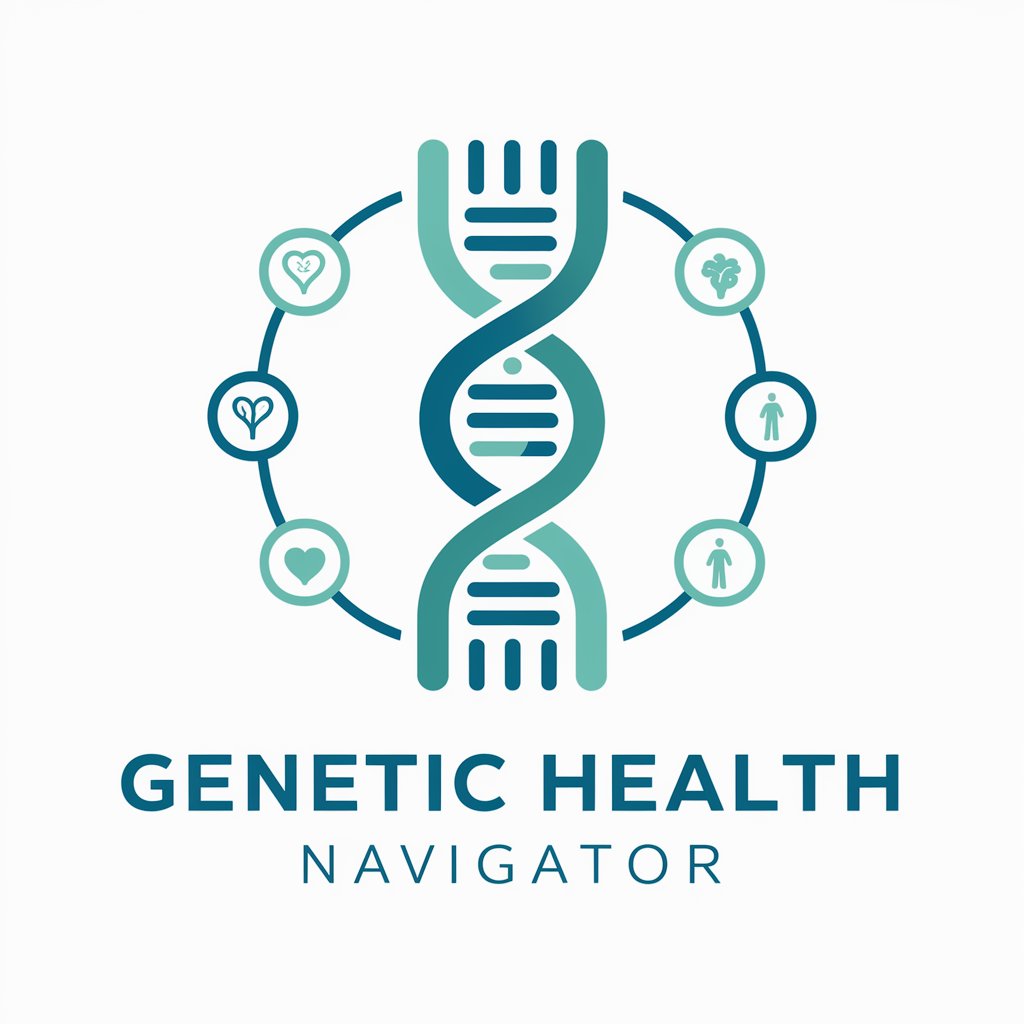
🍽️ Flavorful Moments Creator 🖼️✍️
Culinary Creativity at Your Fingertips

🌟 Cosmic Travel Advisor 🚀
Explore the cosmos with AI-powered advice.

🖼️ Marketplace Magic ✨ Listings
Automate Your Marketplace Sales with AI

🌟 Influencer's Brand Architect 🛠️
Empowering Influencers with AI-Driven Branding

🔬Viral Enigma Solver🦠
Deciphering Diseases with AI Power
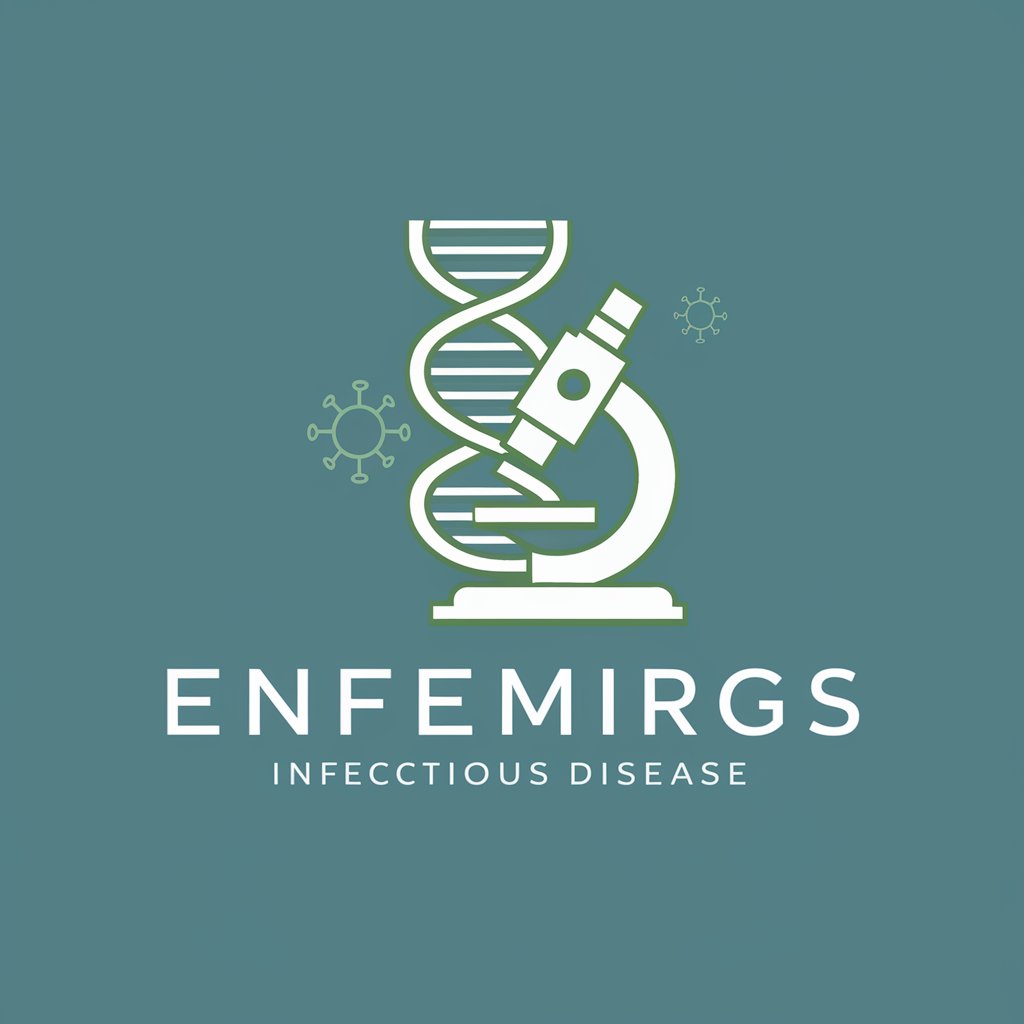
🩸 Hematology Helper Pro 🧬
Unlocking Hematology Insights with AI

👗✨ Fashionista Quiz Master 🎩👠
Styling Knowledge with AI Power

📚✨ Academic Festivity Architect 🎉
Empowering academia with AI innovation.

🎓 EduPolicy Strategist AI 🧠
Empowering Education with AI Insights

👪📚 SchoolBridge Chat Assistant 🌉
Empowering Parent-Teacher Collaboration with AI

Common Questions About Neuro-Navigator Assistant
What kind of information can Neuro-Navigator Assistant provide?
I specialize in neurology, offering insights into neurological disorders, the latest neuroscience research, mental health strategies, symptoms, treatments, and management techniques.
Can Neuro-Navigator Assistant analyze medical data?
Yes, I can interpret neurological data, such as brain imaging or neural network simulations, to aid in understanding and decision-making processes.
How does Neuro-Navigator Assistant help with academic research?
I can provide up-to-date studies, articles, and data analysis in the field of neurology, aiding in literature reviews, hypothesis formulation, and research design.
Is Neuro-Navigator Assistant suitable for patients seeking information?
Absolutely, I offer explanations in layman's terms for various neurological conditions, treatments, and care strategies, supporting informed healthcare decisions.
Can I request custom visual aids?
Definitely. You can request specific visual aids to illustrate neurological concepts, which I can generate to assist in learning or explaining complex ideas.
